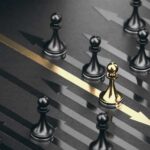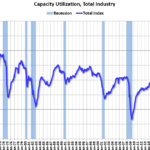With nationalism on the rise in many places, it is disheartening to see the lessons learned in the first half of the 20th century being forgotten, and now we are seeing a repeat of the McCarthyism of the early 1950s. Foreign Policy:
Not so long ago, consultancies and other information brokers could easily work with different clients in different countries, advising competing governments just as they talked to competing companies. In 2015, when McKinsey senior partner Laura Wotzel said she hoped the think tank’s book would “provide information to help Chinese technology companies and government agencies plan and develop,” she probably didn’t expect to be making controversial statements.
But what seemed mundane at the time may now be portrayed as conclusive evidence that the company is aiding the enemy.
Senators Marco Rubio and Josh Hawley have suggested McKinsey is aiding America’s enemies and should be banned from receiving federal contracts. Marco Rubio’s website:
The report was written in the sober language of management consulting, but ultimately it was an attempt to help the Chinese Communist Party (CCP) dominate the United States and other countries in cutting-edge fields such as cloud computing, the Internet of Things, big data, mobile Internet, robotics, 3D printing, advanced materials, autonomous vehicles, artificial intelligence, unconventional oil and gas, electric vehicles, energy storage, renewable energy, and human genome technology. The implications go beyond economic competition. Such technologies, the report noted, “will have a profound impact on future warfare and the development of the defense industry.”
The logic of globalization is that international trade and investment is a win-win process that benefits both sides. But when globalization is replaced by nationalism, economics becomes a zero-sum game. An improvement in the Chinese economy is seen as a negative for the United States because it reduces the United States’ relative position in the international power rankings. Companies that trade with the “enemy” therefore risk being seen as traitors.
Ironically, Foreign Policy magazine reports that the most scathing criticism of McKinsey concerns language suggesting China would benefit from moving in a more communist direction.
of Financial Times report The firm’s China branch boasted of providing economic advice to the Chinese central government in 2019, while the McKinsey-led think tank Advising China “We will deepen cooperation between business and the military and keep foreign companies out of sensitive industries.”
In fact, China’s rise as a great power came when it abandoned Mao-era communism. After 1978, China began allowing more foreign participation in its economy and privatized many of its companies. American nationalists should welcome China’s return to a state-led model that was closed to foreign investment.
But the bigger problem with this new McCarthyism is that it stops seeing countries as mutually beneficial from economic growth, and inevitably increases the risk of war. In the 2000s, China’s growth was seen as good news for the U.S. economy, and U.S. companies saw rapid sales growth in that booming economy. Today, many in the U.S. see China’s economic growth as a threat, and those who support the Chinese economy as traitors to the U.S.
I do not accept a nationalistic view of international affairs. But if the senators really believed in their theory, they might consider awarding the Congressional Medal of Honor to the McKinsey executives who urged China to move in a nationalistic direction. Instead, they should direct their anger at people like me who give speeches in China encouraging free-market reforms, fiscal austerity, nominal GDP targets, and so on. These ideas would actually strengthen the Chinese economy. If trying to improve the economy of a country of 1.4 billion people makes you a traitor, then I am guilty of treason.







